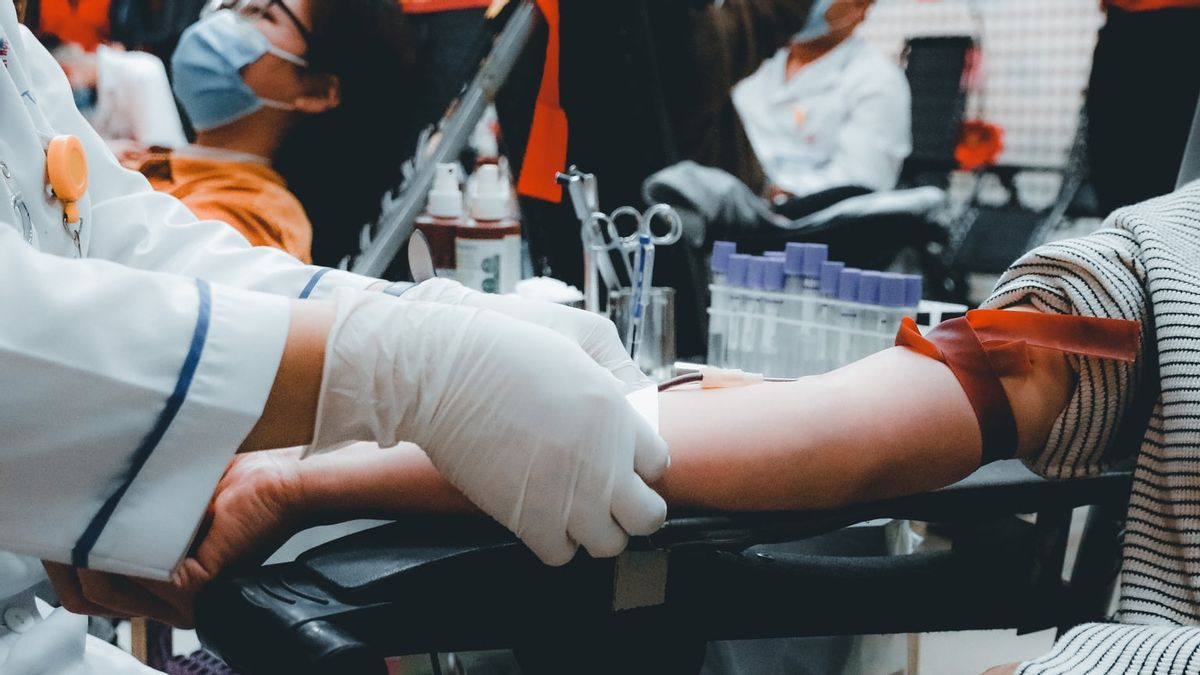JAKARTA - The Indonesian Red Cross (PMI) found 514 bags of blood that were contaminated with infectious diseases in Surabaya. The findings were the result of a screening procedure for the provision of sterile and safe blood requirements.
"PMI blood donor units in all regions throughout Indonesia screen for Infectious Infections Through Blood Transfusions (IMLTD), because our job is to ensure that the blood to be given to patients is safe and free from various infectious diseases that are transmitted through blood transfusions," he said. PMI Secretary General Sudirman Said, Jakarta, Monday, July 25, quoted from Antara.
Sudirman said the IMLTD procedure was contained in the mandatory standard of the Minister of Health Number 91 of 2015 concerning Blood Transfusion Service Standards.
According to the regulation, all blood donors are required to go through a screening procedure that includes four parameters of infection, namely HIV, Hepatitis B (HbSAg), Hepatitis C (HCV), and Syphilis.
According to Sudirman, the procedure revealed that 514 bags filled with blood at PMI Surabaya were infected with infectious diseases during the period from January to June 2022.
In detail, 213 bags of blood were contaminated with Hepatitis B, 139 bags of blood were infected with Hepatitis C, 110 bags of blood were infected with syphilis, and 52 bags of blood were infected with HIV.
The findings were made through the IMLTD procedure on 66,274,000 bags filled with blood obtained from donors in the local area.
"According to these standards, of course, donor blood has been detected for four infection parameters and this has also been successfully detected in all PMI branch offices in Indonesia, so that the blood we release is safe blood with non-reactive screening results," he said.
Efforts to screen for potential infectious disease contamination in blood bags are carried out by PMI in all regions using the latest technology that has a high sensitivity value and has been tested for qualification and validation to detect infections in the blood.
"Currently there are two screening methods that we carry out, namely the NAT molecular examination method and the ChLIA or ELISA serological examination method," he said.
According to Sudirman, all bags containing blood that are declared reactive to infection parameters will be destroyed. "We are working with third parties in managing this infectious waste," he said.
The donors, said Sudirman, were given counseling and referred to the hospital to confirm the infection. During the referral process, donors are blocked from donating blood.
"PMI always maintains the process of organizing donors from donor screening to blood management," he said.
The English, Chinese, Japanese, Arabic, and French versions are automatically generated by the AI. So there may still be inaccuracies in translating, please always see Indonesian as our main language. (system supported by DigitalSiber.id)













